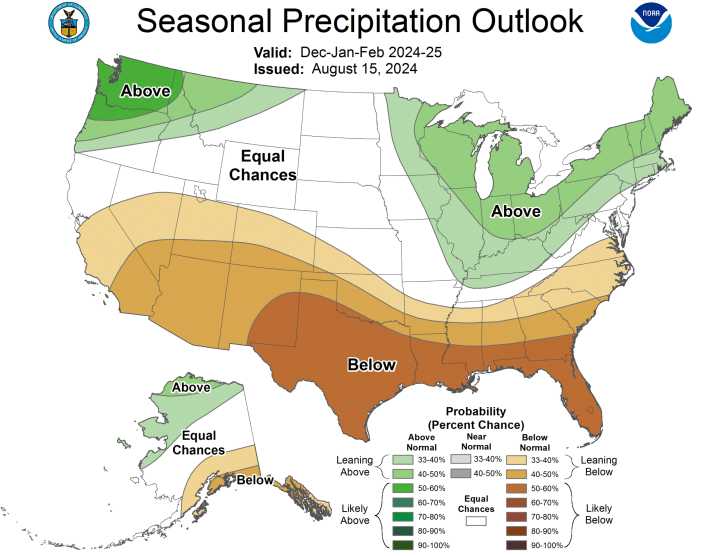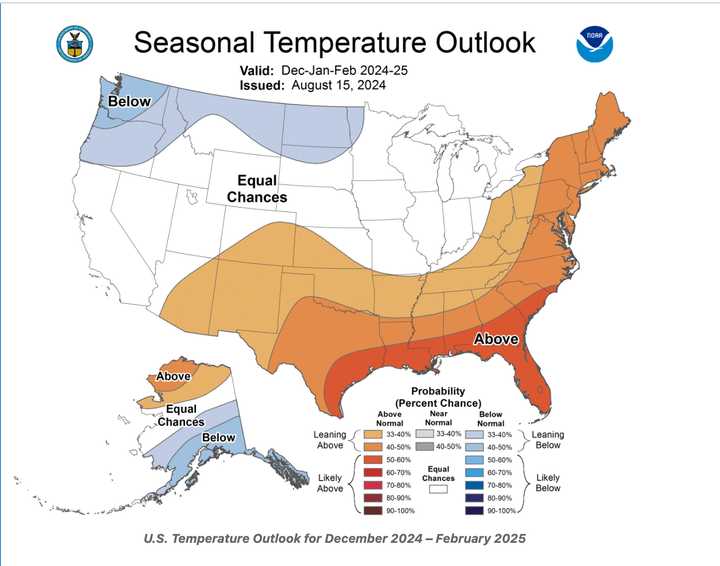The US National Oceanic and Atmospheric Administration (NOAA) says heavy precipitation is expected in the areas shown in the darkest shade of green in the first image above.
Areas shown in light green are "leaning above average" in terms of snowfall.
NOAA predicts temperatures should also lean above average. (See the second image above.)
The Old Farmer's Almanac, which has been in business since 1792, is singing a bit of a different tune, calling for a mild, and dry, winter for the Northeast.
"There will be plenty of snow — however, precipitation and snowfall will be slightly below normal," it says.
Old Farmer's Almanac says it has an 80-percent success rate with its forecasts.
"In the Northeast — Massachusetts, Vermont, New Hampshire, Maine, and eastern New York — winter is always cold and snowy," its forecast reads. "But we’re predicting a gentler-than-normal season that’s not so rough and tough."
“This winter, temperatures will be up and snowfall down throughout most of the United States,” reports Carol Connare, the Old Farmer's Almanac's editor-in-chief. “While there will still be plenty of chilly temperatures and snow for most slopes, the high heating costs associated with the season shouldn't hit so hard."
A similarly named but separate publication, Farmers' Almanac says, "Winter in New England and the Northeast will be stormy with above-normal amounts of winter precipitation and near-to above-normal temperatures.
"Snow will be most prevalent over the interior and mountainous terrains, while sleet and rain will be more common near the coast, especially near and along the I-95 corridor."
It adds that "the coldest outbreak of the season will come during the final week of January into the beginning of February, when frigid Arctic air brings a sharp plunge in temperatures almost nationwide."
Check back to Daily Voice for updates.
Click here to follow Daily Voice West Springfield and receive free news updates.

